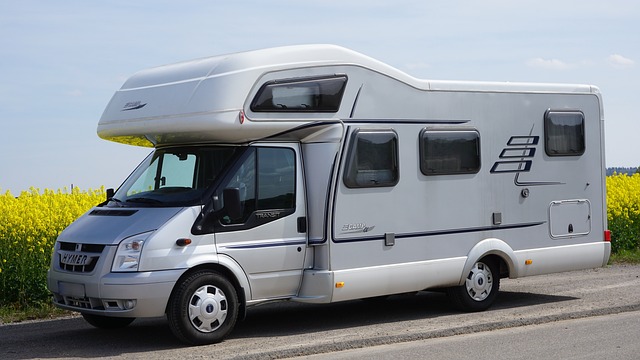RV insurance, short for recreational vehicle insurance, is a specialized type of coverage designed to protect motorhomes, camper vans, and travel trailers. Just like auto insurance protects cars, RV insurance offers financial security for your vehicle and personal belongings in the event of accidents, damage, or other unexpected incidents. If you’re an RV owner or considering purchasing one, understanding what RV insurance entails and why it’s essential can save you from significant financial losses and provide peace of mind during your travels.
What Is RV Insurance?
RV insurance is a tailored policy that combines elements of auto, homeowners, and travel insurance. It provides coverage for both the vehicle itself and the living space within, making it uniquely suited to the needs of RV owners. Depending on the policy, RV insurance can cover a range of incidents, including collisions, theft, fire, and liability claims.
For those who use their RV as a full-time residence, RV insurance may also offer additional protections, such as coverage for personal belongings, liability for injuries on your premises, and emergency expenses.
What Does RV Insurance Cover?
The coverage provided by RV insurance varies depending on the policy and provider. However, most policies include the following key components:
Collision Coverage
Collision coverage pays for damages to your RV resulting from an accident, regardless of who is at fault. This is particularly important for RVs, as repair costs can be significantly higher than for standard vehicles.
Comprehensive Coverage
Comprehensive coverage protects against non-collision incidents, such as theft, vandalism, fire, and natural disasters. For RV owners who frequently travel to areas prone to extreme weather, comprehensive coverage is invaluable.
Liability Coverage
Liability coverage pays for damages or injuries you cause to others in an accident. It also covers legal fees if you’re sued following an incident.
Personal Belongings Coverage
Since RVs often double as living spaces, they contain personal belongings like clothing, electronics, and kitchenware. RV insurance can cover the cost of replacing these items if they’re stolen or damaged.
Emergency Expense Coverage
If your RV becomes uninhabitable due to an accident or covered event, emergency expense coverage pays for temporary lodging and transportation.
Uninsured/Underinsured Motorist Coverage
This coverage protects you if you’re involved in an accident with a driver who lacks adequate insurance.
For additional benefits of adding insurance features like roadside assistance, read here.
Why Do You Need RV Insurance?
Owning an RV comes with unique risks that standard auto insurance policies don’t fully address. Here’s why RV insurance is essential:
Legal Requirements
In most states, RV insurance is legally required if your vehicle is motorized. Just like cars, RVs need minimum liability coverage to operate on public roads. Failing to meet these requirements can result in fines, license suspension, or worse.
Financial Protection
RVs are significant investments, often costing tens of thousands of dollars or more. RV insurance ensures you’re financially protected against damages, theft, or total loss.
Coverage for Unique Risks
RVs face unique risks, such as damage during parking or camping, theft of personal belongings, and liability for injuries on your premises. Standard auto insurance doesn’t account for these factors.
Peace of Mind While Traveling
Whether you’re embarking on a weekend getaway or living in your RV full-time, having the right insurance coverage provides peace of mind. Knowing you’re protected against unforeseen events allows you to enjoy your travels without constant worry.
For insights into managing costs associated with insurance, read here.
Who Needs RV Insurance?
RV insurance is essential for all RV owners, but certain groups may benefit the most:
Full-Time RV Residents
If your RV is your primary residence, RV insurance provides coverage similar to a homeowners policy. This includes liability coverage, personal belongings protection, and coverage for emergency expenses.
Seasonal Travelers
Even if you only use your RV a few times a year, accidents, theft, and natural disasters can happen. RV insurance ensures your vehicle is protected during travel and storage.
High-Value RV Owners
Owners of luxury RVs or custom motorhomes should prioritize comprehensive insurance to protect their significant investments.
Frequent Campers
For those who regularly park their RVs at campsites, liability coverage protects against injuries or damages that may occur on your premises.
How Much Does RV Insurance Cost?
The cost of RV insurance varies widely based on factors such as:
- Type of RV: Motorized RVs typically cost more to insure than towable trailers.
- Usage: Full-time RV residents often pay higher premiums due to increased risks.
- Coverage Limits: Policies with higher limits and additional features come with higher premiums.
- Location: Where you store and operate your RV affects your insurance rates.
On average, RV insurance costs between $250 and $1,000 annually for part-time users. Full-time RVers may pay $1,000 to $2,000 or more per year, depending on their coverage needs.
Tips for Choosing the Right RV Insurance Policy
Assess Your Needs
Determine how you’ll use your RV and what coverage is most important. For example, full-time residents may prioritize personal belongings coverage, while occasional travelers might focus on collision and liability protection.
Compare Providers
Shop around and compare quotes from multiple insurance companies. Look for providers with experience in RV insurance and strong customer reviews.
Consider Bundling
Bundling your RV insurance with other policies, such as auto or homeowners insurance, can result in significant discounts.
Review Deductibles
Choose a deductible that balances affordability with financial security. Higher deductibles lower premiums but increase out-of-pocket costs during a claim.
Real-Life Example: The Importance of RV Insurance
Imagine Mike, a full-time RVer traveling across the country. During a severe storm, a tree falls on his motorhome, causing extensive damage. Thanks to his comprehensive RV insurance policy, Mike’s repairs are fully covered, and his emergency lodging expenses are reimbursed. This coverage allows him to continue his journey without major financial setbacks.
RV insurance is an essential investment for any recreational vehicle owner, providing financial protection, peace of mind, and legal compliance. Whether you’re a full-time RVer, a seasonal traveler, or someone who occasionally takes weekend trips, the right RV insurance policy ensures you’re covered against a wide range of risks. By understanding your coverage needs and comparing options, you can find a policy that keeps you protected while enjoying the open road.



